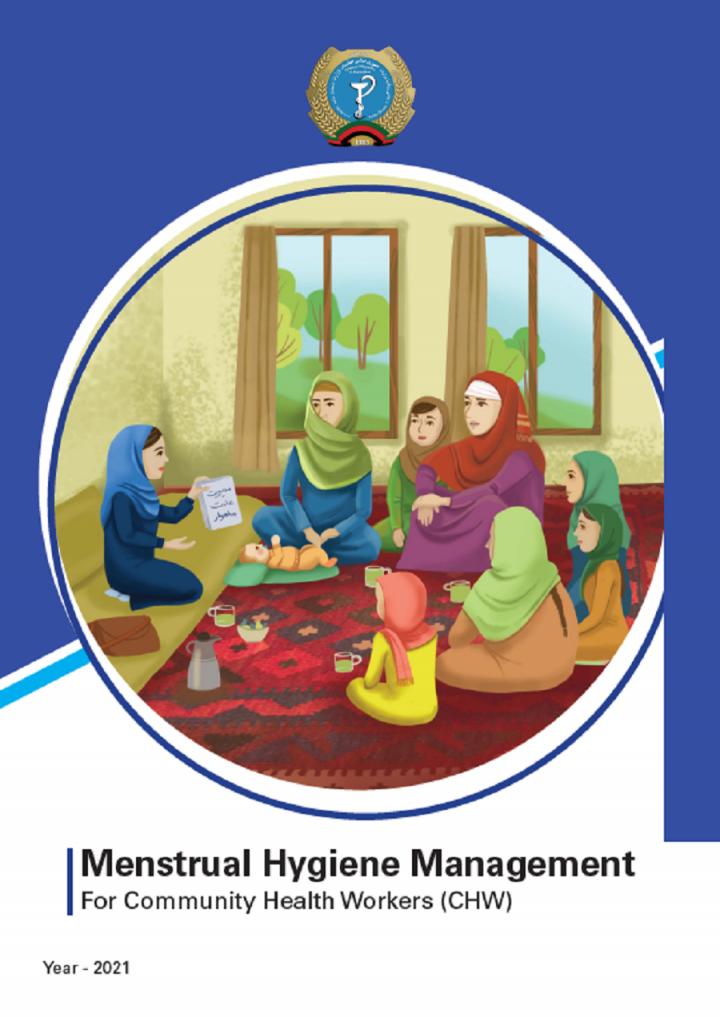Menstrual Hygiene Management For Community Health Workers (CHW) UNICEF (2021)
Recent researches show that Afghan women and girls face many challenges in managing their menstrual cycle or menstruation. They do not have access to sufficient facilities and face discriminatory customs and traditions in the family and society. This issue has made it difficult for them to observe proper health conditions and cleanliness during menstruation.
About 70 percent of girls do not take a bath during menstruation due to fear of infertility, and in some cases, they even have to hide their menstruation from their mothers so that families do not prevent them from going to school. According to some misconceptions, some families do not allow girls to eat certain healthy foods during this period, which of course causes health problems.
Therefore, community health workers can increase women and girls’ awareness through this guideline and help them deal with their problems easily and confidently during menstruation.
Bibliographic information
UNICEF (2021). Menstrual Hygiene Management For Community Health Workers (CHW) UNICEF
Filter / Tags
EnglishWomen's rights & representation and empowermentMenstrual Health and Hygiene (MHH)
Downloads

Published in: 2021
Pages: 19
Publisher:
UNICEF
Author(s):
UNICEF
Uploaded by:
UNICEF
United Nations Childrens Fund
